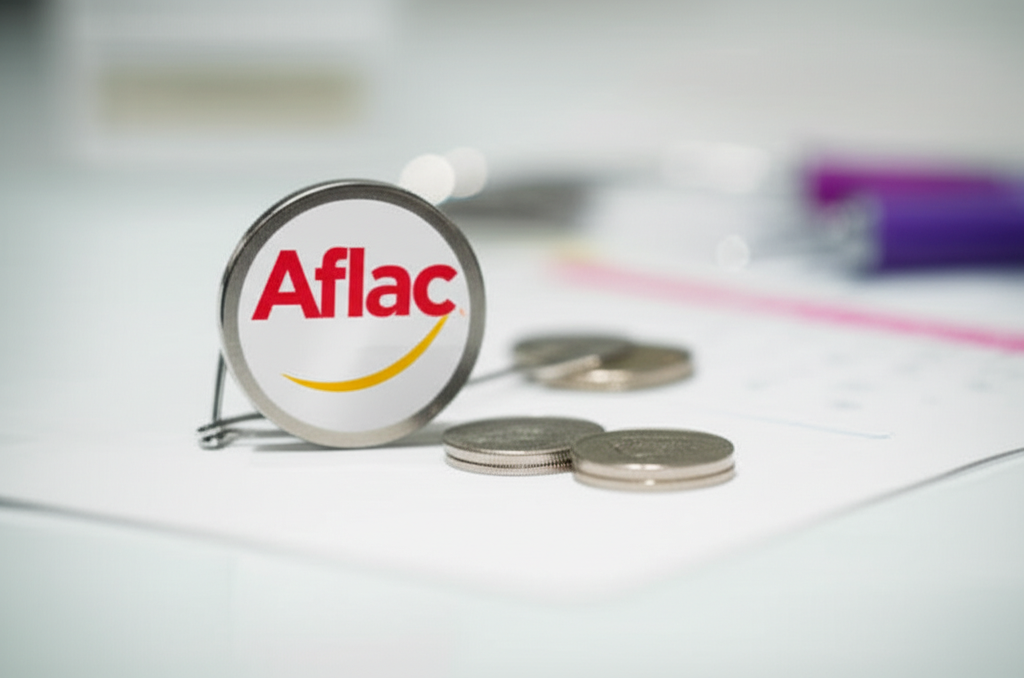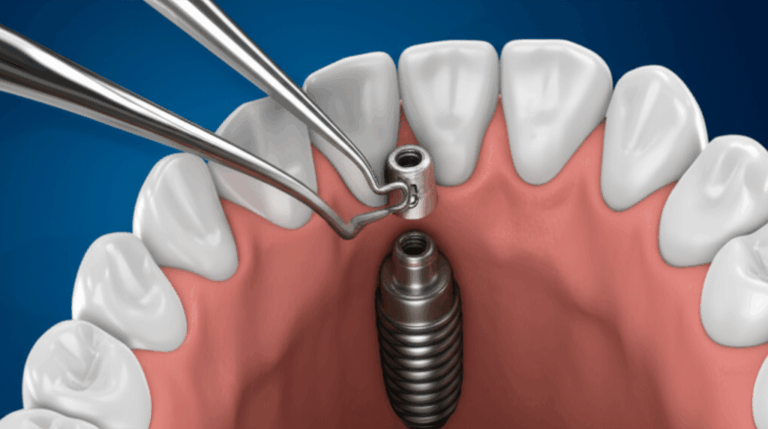
Does Aflac Dental Insurance Cover Dental Implants? A Comprehensive Guide to Benefits & Limitations
Have you ever wondered if Aflac Dental Insurance will help pay for dental implants? You’re not alone. This guide will show you what Aflac covers, the steps you need to take, and other smart options to help you afford a healthy, beautiful smile. Dental implants can be life-changing, but they’re expensive. Don’t worry—I’ll walk you through all you need to know, using easy language and real examples. Let’s make this big choice a bit less confusing!
Table of Contents
What is Aflac Dental Insurance and What Do Dental Implants Mean?
When people talk about Aflac Dental Insurance, they think about a different kind of extra insurance. Most dental insurance pays your dentist right away. Aflac is different—it pays you! You get cash, then use it however you want: for dentist bills, travel, or anything else.
But why do people look up “dental implants”? Here’s the easy answer. Dental implants are strong “fake roots” for new teeth. Dentists put them in your jaw bone, then put fake teeth on top. Implants are great if you lose a tooth. They last a long time, are strong, and look just like a real tooth.
Here’s the hard part: dental implants cost a lot. Just one can be $3,000–$6,000. Most normal dental plans either don’t pay for them, or only pay some of the bill. That’s where Aflac comes in.
Does Aflac Cover Dental Implants at All?
Let’s get right to it. Yes, Aflac can help with dental implant costs—but it’s not like normal insurance.
Instead of paying your dentist right away, Aflac gives you a set amount of cash after you send in your claim. This is called a “fixed cash benefit.” You get your dental care, pay the dentist, then Aflac sends you some money (up to their plan limits). You pay the dentist yourself.
If you have to get a dental implant at your local dentist, just bring your best dental work. You pay for the dental work, then send your paperwork to Aflac, and they send you a check or deposit.
But, there are rules. The amount they send depends on your plan, the service, and how much you can get each year. Expect Aflac to pay a set amount (usually between $500 and $1,500 for each implant), not the whole price. If you have their best plan, it might be higher.
How Do Aflac Dental Plans Handle Implant Costs?
When you look at Aflac dental plans, you’ll see a few main picks:
- Value Plan: Cheaper each month, but pays less each time.
- Standard Plan: A bit more coverage, costs a little more.
- Premier Plan: The most expensive, pays the most.
Dental implants are in a group called “major restorative services.” That means big dental work that replaces or fixes teeth, like crowns, bridges, and implants.
Scheduled Benefits vs. Percentage Coverage
Aflac pays scheduled benefits. Instead of paying a part of the bill like some insurance, Aflac lists a dollar amount for each service, no matter what your dentist charges.
Example table:
| Procedure | Aflac Pays | Actual Cost |
|---|---|---|
| Single Implant | $1,000 (from schedule) | $4,000 |
| Implant Crown | $300 (from schedule) | $1,200 |
| Bone Graft | $400 (from schedule) | $800 |
If your dentist charges more than Aflac pays, you pay the rest. It’s easy, but means you’ll still need to save up.
What Rules Affect Dental Implant Coverage?
Not all plans are the same. Four main things can change how much Aflac pays and when:
1. Fixed Cash Benefits & Policy Limits
Each plan pays a set dollar amount for each covered service. Even if you need more than one implant, Aflac usually has a max you can get—often $1,500 a year or less. For example, if your plan says $1,000 for each implant but $1,500 max in one year, two implants won’t mean $2,000—you’ll hit the max at $1,500.
2. Waiting Periods
You usually have to wait 6–12 months before Aflac will help pay for implants. This rule stops people from signing up and making big claims right away. If you need a new tooth right now, this can be a problem.
3. Deductibles
Some plans need you to pay a certain amount (a deductible) before benefits start. Check your plan or ask an agent.
4. Exclusions and Fine Print
Aflac’s book will list what’s not covered. Often:
- Cosmetic dental work (work just to make teeth look better)
- Some problems you had before the plan started
- Sometimes, parts of the implant work, like a bone graft or connector, may not be paid for by itself
Be sure to read your plan or phone Aflac if you’re not sure about a detail.
How Do You File a Dental Implant Claim With Aflac?
Getting your cash benefit isn’t hard. Here’s how you do it:
1. Pre-authorization
Ask Aflac before treatment about your plan. Check what’s covered, and what steps you need to follow.
2. Gather Your Paperwork
After dental work, collect:
- Itemized bills (shows each part with price)
- X-rays
- A treatment plan from your dentist
- Proof you paid (receipts)
3. Submit Your Claim
You can send it online, or mail/fax your papers. Make sure every page is clear and easy to read.
4. Receive Your Payment
Aflac will check your claim and send you a check or deposit your money. Most claims finish in a few weeks, but calling their number can help speed things up.
How Can You Make the Most of Your Aflac Benefits?
So, you want to get the most from your dental plan. Here’s some advice:
Read Your Policy Carefully
Not every plan or every state has the same coverage. Read your plan booklet and call Aflac to double-check for major dental procedures.
Plan Ahead and Space Out Treatment
If you need more than one dental implant, ask your dentist if you can do them in different years. That way, you can get up to the max each year and get more of your money back. For example:
Year 1: Left side implant (max benefit $1,500)
Year 2: Right side implant (new max benefit $1,500)
Combine Aflac With Other Insurance
Some people have regular dental insurance too. Aflac’s cash benefit is paid separate—you still get your regular insurance payment, plus Aflac’s check.
Talk With Your Dentist
Let your dentist office know you have Aflac. Ask them for clear bills and help with paperwork. Some dentists will even split up your care or suggest cheaper parts, like different crowns, to help make your costs lower.
What Are Smart Alternatives to Pay for Implants?
What if Aflac won’t pay all your dental implant bill? Don’t worry—other good ways can help get your smile back:
- Traditional Dental PPO/HMO Plans: Some will pay part—maybe 50%—for implants and big dental work. Make sure implants aren’t left out!
- Dental Savings Plans: These aren’t insurance, but give you discounts at special dentists. You pay a yearly fee for deals on implants and more.
- Dental Schools and Community Clinics: Students and new dentists need to learn, so they often have lower prices.
- Financing, Like CareCredit or Personal Loans: Monthly payments sometimes make dental care possible.
- Look for affordable dental implants at offices or dentists who use good, lower price options.
Everyone’s money situation is different. The main point? Shop around, ask questions, and check all your choices.
Common Problems With Coverage… and How to Solve Them!
Even the best plan can feel tricky to use. Some common problems are:
- Hitting the Max Too Fast: I’ve seen people use up their $1,500 on their first visit! Plan big work over a couple years, if you can.
- Missing Paperwork: If your claim is missing a bill, Aflac might say no. Double-check your papers before sending.
- Not Knowing the Waiting Period: If you get an implant before you wait your first months, Aflac does not pay. Always ask about when you can start.
- Cosmetic vs. Medical: If the dentist says your work is “cosmetic,” Aflac might refuse. Ask your dentist to show it’s needed for health on your paperwork.
If you get denied, don’t give up. Ask why, fix the problem, and appeal!
Case Studies: How Real People Used Aflac for Implants
Let’s check out some examples, like real life.
Case Study 1: Maria Needs One Implant
Maria lost a tooth. Her dentist said a dental implant would cost $4,000. Maria’s Aflac plan pays $1,000 per implant, with a $1,500 yearly max.
- After waiting 12 months, Maria got her implant.
- She paid $4,000 to the dentist; then sent her bills and X-rays to Aflac.
- Aflac sent her a check for $1,000.
- Maria paid $3,000 out of her own pocket.
Case Study 2: Jack’s Multiple Implants
Jack needed three implants after an accident. Each one cost $3,500. His plan said $1,000 per implant, $1,500 yearly max.
- Jack had two implants in January. Aflac paid the $1,500 yearly max (not $2,000).
- Jack waited until a new year, then got his third implant. He got $1,000 from Aflac (new yearly max).
What to Learn?
Aflac pays a set amount for each implant, but the yearly max means you should plan big dental work carefully.
FAQs About Aflac Dental Implant Coverage
Q: Does Aflac pay for all parts of a dental implant—like bone grafts, crowns, and connectors?
A: Usually, Aflac pays separate for each step—like surgery, the implant, crown, or bone grafts—if their list includes them. Always check your plan and ask Aflac.
Q: Can I use Aflac for implants if I need care right now?
A: Only after you wait out the hold time (6–12 months, usually). If you need care suddenly, ask your dentist about splitting up care or payment.
Q: Is Aflac accepted everywhere?
A: Yes, you can use any dentist because Aflac pays you, not the office. That’s why so many people think it’s flexible!
Q: Is it worth getting Aflac if I already have dental insurance?
A: If you face big bills (like dental implants), extra cash from Aflac can help you cover the parts your regular insurance won’t pay for.
Main Things to Remember
- Aflac does help pay toward dental implants, but it gives you a set amount, not the full bill.
- Know your plan’s yearly max—that’s the most you’ll get each year for big dental work.
- You will likely have to wait several months before you can claim for implants.
- Always keep all your paperwork—bills, X-rays, and notes—when you send a claim.
- Plan big dental work carefully. Do some now, some next year if possible.
- Talk with your dentist and look for smart ways to save on dental care, like clinics or community programs.
- Aflac is “extra”—it doesn’t replace normal dental insurance, it adds a cash boost.
- If Aflac says “no,” ask why, and try to appeal if you still think you should be paid.
Dental implants are a big step for your teeth—and the right coverage can help make the price less scary!








